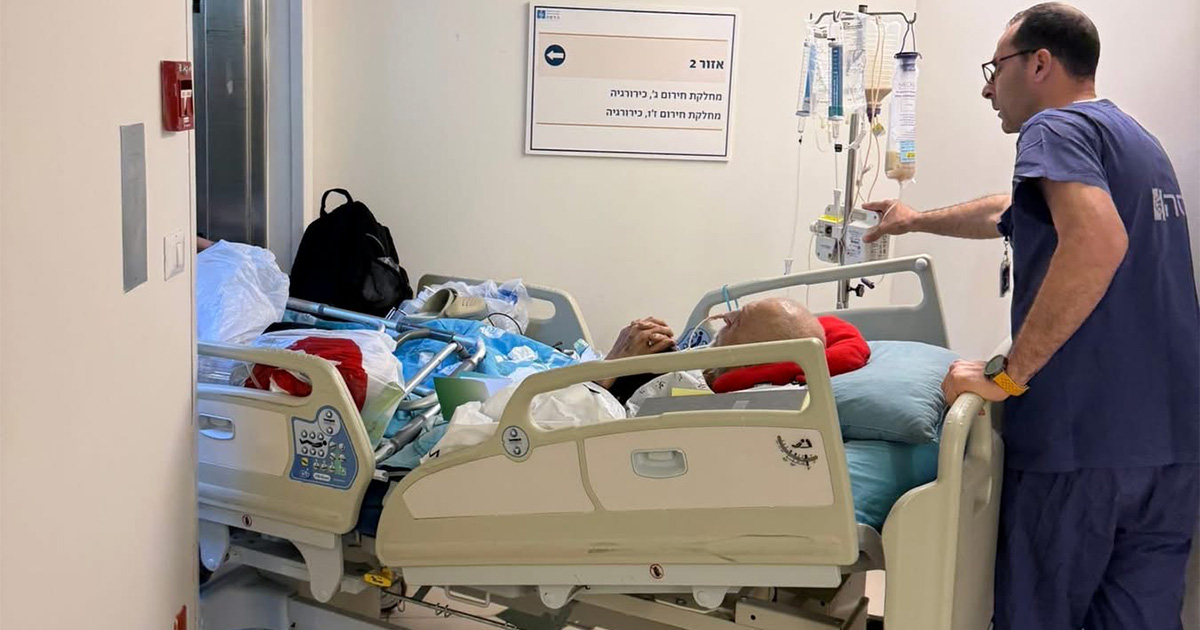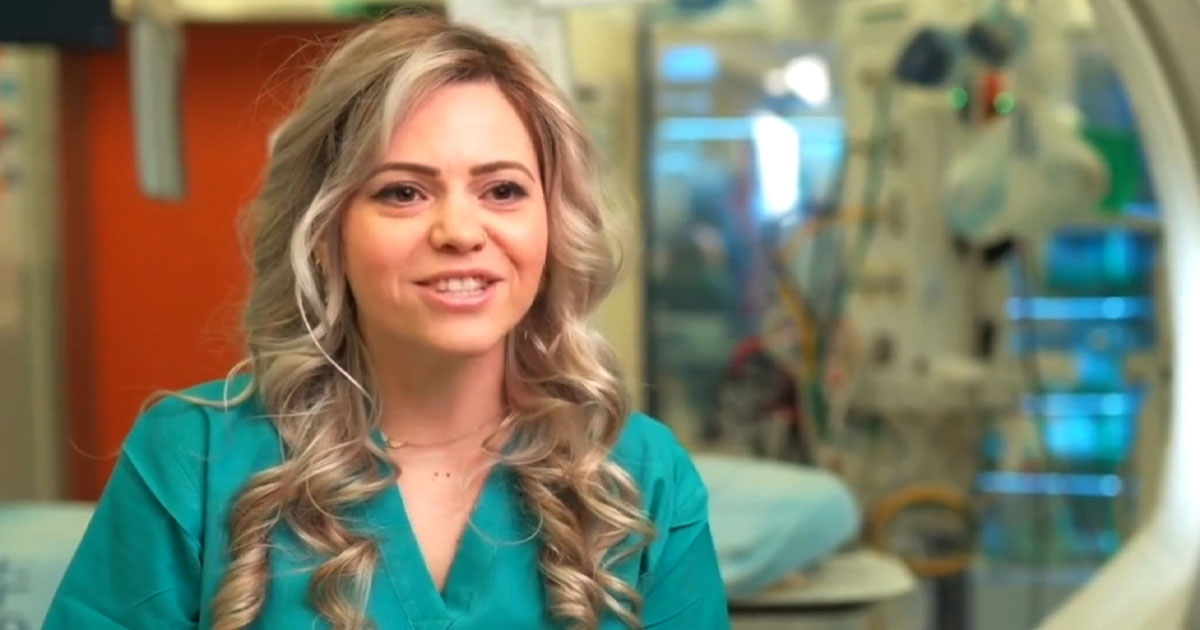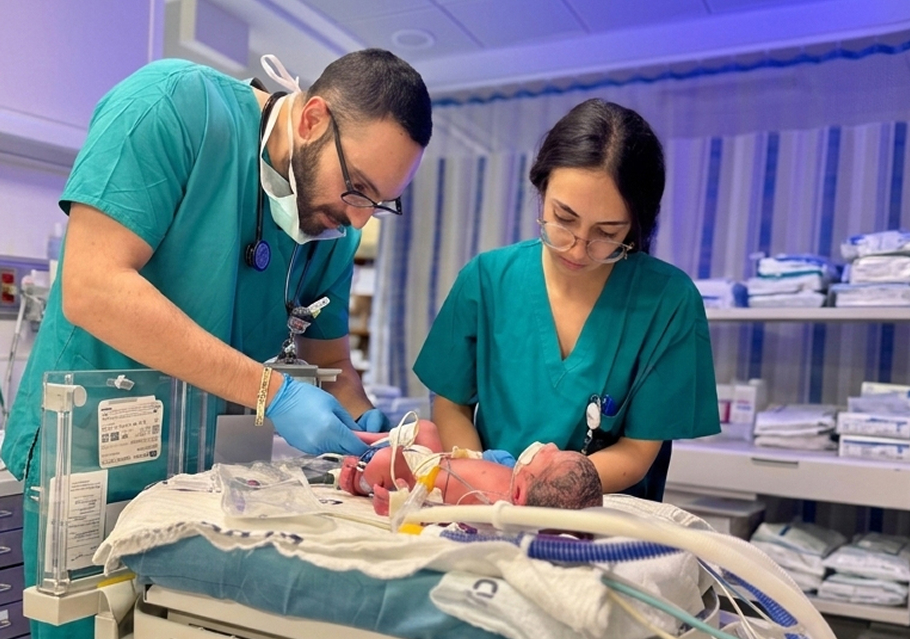This Breast Cancer Awareness Month, help Hadassah spread awareness about the second most deadly cancer for women and how we’re making an impact. Through groundbreaking research at our hospitals in Israel and local Hadassah education and wellness programs around the country, Hadassah is helping women live longer, healthier lives.
The Action (You Can Take Now)
- Hadassah is committed to empowering patients and caregivers, from prevention and early detection to treatment and long-term wellness. Join Hadassah in supporting the bipartisan Comprehensive Cancer Survivorship Act to help survivors navigate care and access support resources through, and beyond, a cancer diagnosis. Act now.
- Check in with your local Hadassah chapter to find out what’s happening in your community.
- Give. Support Hadassah healing.
The Facts
- One in 8 women will be diagnosed with breast cancer.
- A woman’s risk of breast cancer doubles if she has a first-degree relative who has been diagnosed with breast cancer.
- Women with a BRCA gene mutation are at significantly higher risk for the development of breast, ovarian and certain other cancers compared to the general US population.
- One in 40 women with Ashkenazi Jewish heritage has a BRCA mutation, more than ten times the average.
- About 50 out of 100 women with a BRCA gene mutation will get breast cancer by the time they turn 70 years old, compared to only seven out of 100 women in the general US population.
- Not everyone who inherits a BRCA1 or BRCA2 mutation will get breast or ovarian cancer.
- Not all inherited forms of breast or ovarian cancer are due to mutations in the BRCA1 and BRCA2 genes.
- Some breast cancers do not show any signs or symptoms.
The Tips
- Learn your ancestors’ and relatives’ health histories from both your mother’s and father’s sides. This information can help your doctor decide whether to refer you to a genetic counselor to find out if genetic testing might be right for you.
- Get to know your breasts to spot any changes early, particularly if you are at high risk.
- Be open with your healthcare provider about any risks you may have, concerns about your body and your family history.
- Work with your health care provider to determine a screening schedule that’s right for you, based on your risk.
The Achievements: Research Saving Lives
- The Hadassah Medical Organization treats more than 500 new cases of breast cancer per year. Breast cancer accounts for approximately 16 percent of all cases of cancer in Israel, with over 5,000 cases diagnosed every year.
- In Israel, Hadassah oncologists have treated the largest number of high-risk carriers of the BRCA genetic mutations tied to breast and ovarian cancer. It was HMO research that confirmed that Ashkenazi Jews have at least a 10 times greater prevalence of BRCA1 gene mutations that can cause breast and ovarian cancer, leading to increased screenings and/or genetic consultations. Researchers have since discovered founder mutations in Sephardic and Kurdish Jews, increasing the risk of breast cancer in these populations.
- The Breast Oncology Program at Hadassah’s Sharett Institute of Oncology supports women with integrative multidisciplinary care, addressing everything from prevention and diagnosis through treatment and survivorship, all while building on its groundbreaking research.
- Hadassah is leading a research study to characterize the diagnosis, care and outcomes of advanced breast cancer in unique ethnic cohorts in greater Jerusalem, one of Israel’s poorest cities, with a focus on the Arab and ultra-Orthodox Jewish populations. The goal is to improve and streamline the care of women from multi-ethnic backgrounds through a more comprehensive understanding of the barriers to health care access.
- Staffed by oncologists, radiologists, gynecologists, oncologic surgeons and plastic surgeons, the Sharett Institute provides patients with all necessary screenings, consultations, fertility preservation procedures, preventive surgeries and hormone replacement therapy.
- “Treatment is always personalized and depends on completely individual parameters,” according to Prof. Tanir Allweis, director of Hadassah’s Breast Complex and the Breast Surgery Department.
- Hadassah's Psycho-oncology Service of Breast Oncology at the Sharett Institute is a one-of-a-kind dependable, supportive service for patients, accompanying them throughout all stages of the disease. Treatments include individual, couples, family and group treatments; therapeutic approaches, including existentialist therapeutic work and mind-body interventions; and support groups for women in recovery and survivorship.
- Hadassah has the only breast oncology unit in Israel with its own dedicated team of psychologists.
- The Sharett Institute’s Breast Oncology Program established the Lotus Clinic, a specialized clinic for addressing the side effects of chemotherapy, including vaginal dryness and pain during intercourse.
- HMO researchers pioneered a diagnostic regimen to prevent transmission of the BRCA mutation to the next generation. This breakthrough in in vitro fertilization and preimplantation genetic diagnosis (PGD) enables women with the mutation to have their embryos pre-screened.
- Hadassah is leading research at the Multidimensional Molecular Cancer Therapeutics Laboratory at the Hadassah Cancer Research Institute about the TP53 gene mutation. For some patients carrying the TP53 gene mutation, resistance to classic metastatic breast cancer treatment develops within six months, compared to a typical two-year time frame for noncarriers. Up to one-third of patients with estrogen receptor-positive breast cancer have the TP53 mutation; a significant number of patients who will not benefit from endocrine therapy. Hadassah is researching why the TP53 mutation is associated with the failure of all oncological treatments and how to apply a deeper understanding of this mutation towards the improvement of treatments.
- HMO recently discovered that mutations to part of the gene TP53, which helps repair damaged DNA, make Arab women vulnerable to developing breast cancer. A blood test developed at the Hebrew University and HMO can monitor for the first signs of possible cancer and also help show how effective treatment is for women already diagnosed. “Treatment of early breast cancer is critical. It leads to a cure in more than 90% of patients,” says Aviad Zick, senior oncologist at Hadassah’s Sharett Institute of Oncology.
- Recognizing that young women with breast cancer have specific needs, Dr. Shani Paluch-Shimon, director of HMO’s Breast Oncology Program, instituted a patient navigator system to help them through the maze of breast cancer tests, appointments and treatments. The navigator holds a degree in public health, and she helps deliver information in a way that can be easily understood.
- Hadassah has been a leader in Israel in offering fertility preservation treatment, which entails taking out a piece of ovarian tissue and freezing it so it can be re-implanted back into the woman after several years. Eggs can be retrieved from there.
The Patient Stories



.svg)






